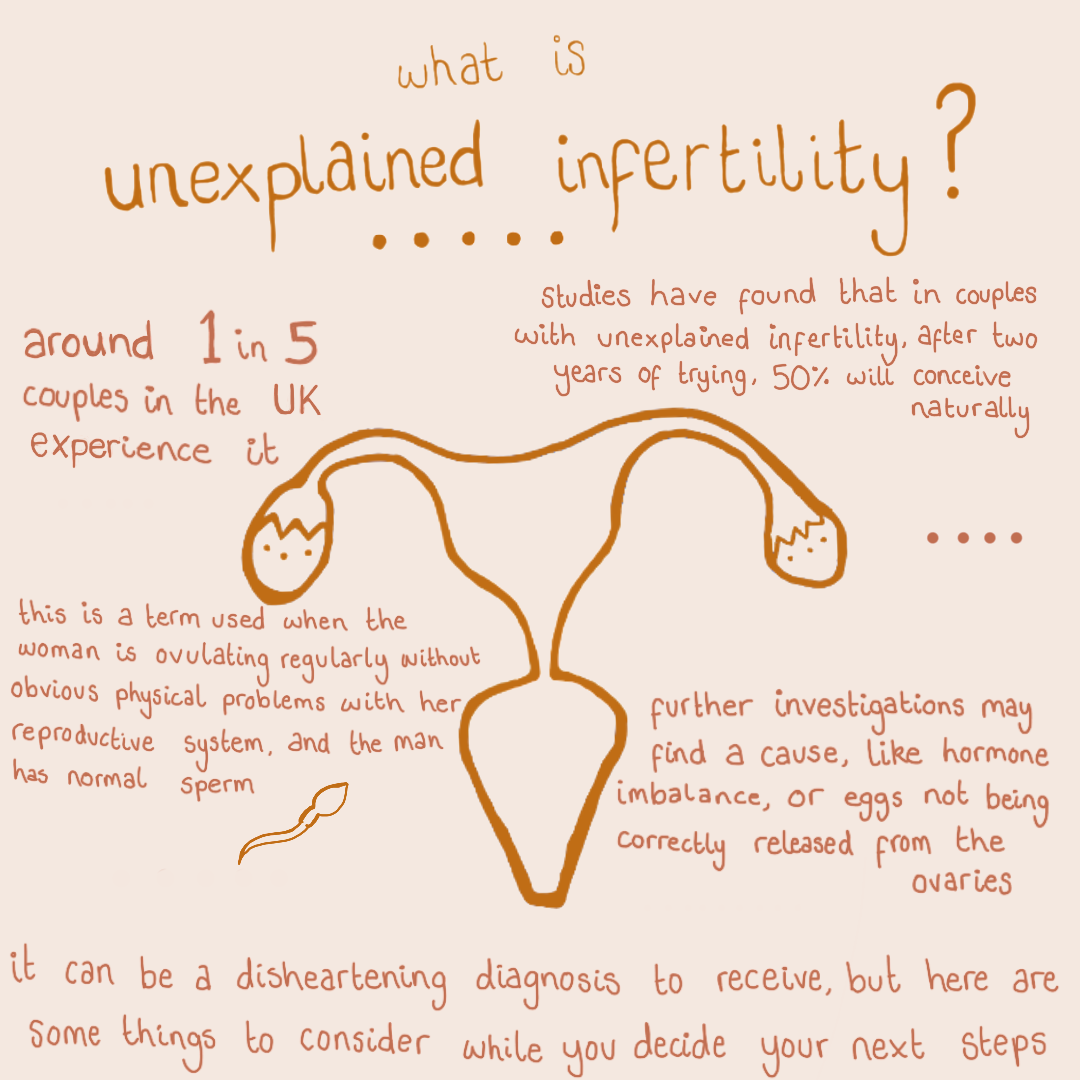What is unexplained infertility?
‘Unexplained Infertility’ is a term used by medical professionals to describe a couple, or person, who are trying to conceive but are as yet unsuccessful. Usually, after 1 year of trying to conceive without success, you should be offered some fertility tests. These can be both for the man and the woman, and may include ultrasound scans of the ovaries and fallopian tubes, blood hormone tests and semen quality and quantity tests. These tests should show if there is any ‘obvious’ reason for not getting pregnant. If it has been two years of trying to conceive, with normal test results, and still no pregnancy, this can be defined as ‘unexplained infertility’.
But ‘infertility’ may be a bit too black and white. One study found that even with a diagnosis of ‘unexplained infertility’, 50% of couples become pregnant naturally after another two years of trying.
Around 1 in 5 couples in the UK experience unexplained infertility, so though it can be a difficult diagnosis to receive, you are certainly not the only one. There are support groups and forums online where you can find peer support.
However, even with ‘unexplained infertility’ there is more that can be done. Further tests may reveal a reason for not yet becoming pregnant, and treatments such as unblocking of fallopian tubes or drugs to improve regularity of periods and ovulation.
And in the meantime, perhaps while you keep trying, or wait for further support, there are some lifestyle factors to think about, that may just help:
Regular exercise
Reduced caffeine intake
Stopping smoking
Reducing stress
Working towards a health body weight
Taking specific nutritional supplements
Each of these will be covered in more depth in upcoming blogs. If you would benefit from further personalised support, or want to speak with a dietitian about your fertility journey, please contact us via the website or email.
References -
DOI: PMCID: PMC2505167
NICE: NG73, 2017


